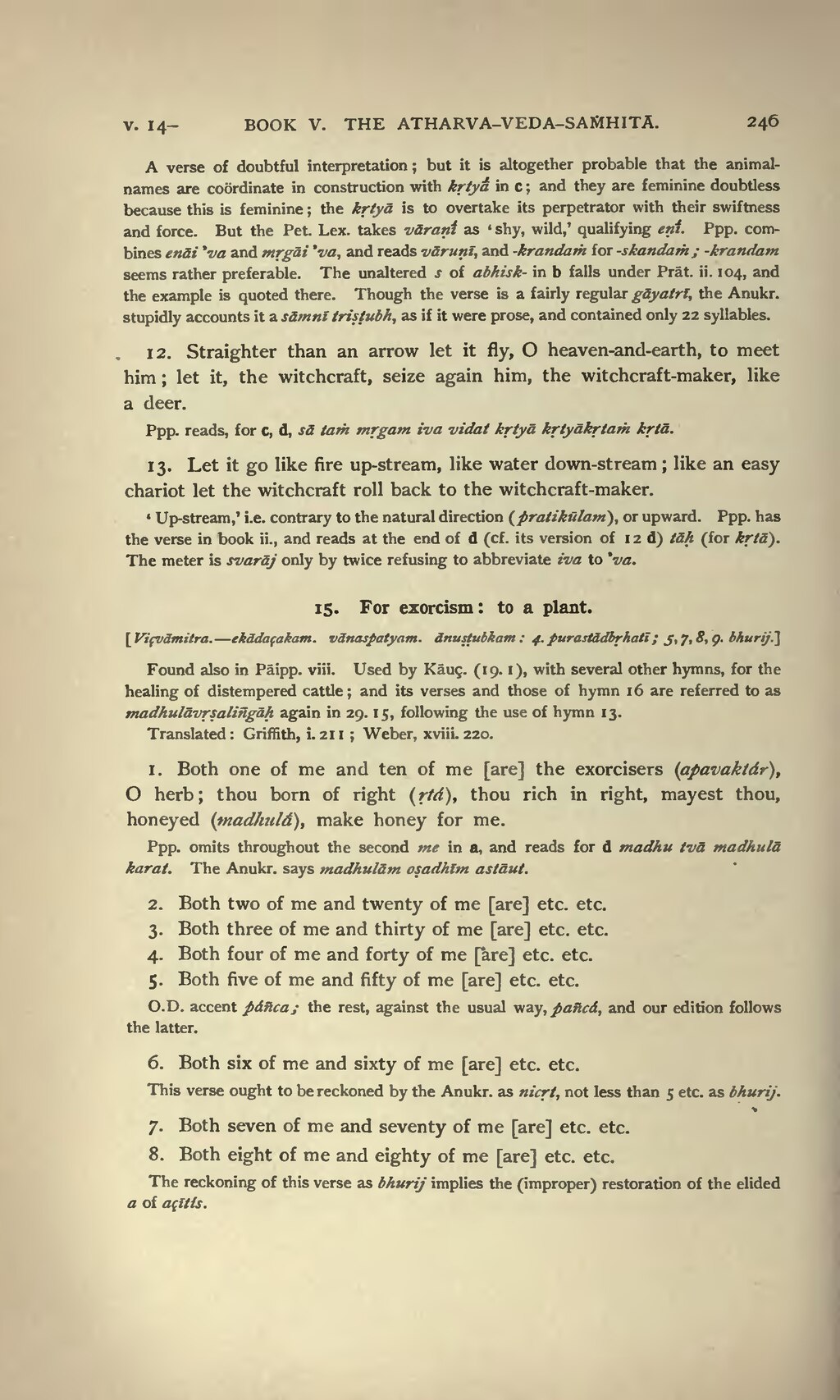12. Straighter than an arrow let it fly, O heaven-and-earth, to meet him; let it, the witchcraft, seize again him, the witchcraft-maker, like a deer.
Ppp. reads, for c, d, sā taṁ mṛgam iva vidat kṛtyā kṛtyākṛtaṁ kṛtā.
13. Let it go like fire up-stream, like water down-stream; like an easyc hariot let the witchcraft roll back to the witchcraft-maker.
'Up-stream,' i.e. contrary to the natural direction (pratikūlam), or upward. Ppp. has the verse in book ii., and reads at the end of d (cf. its version of 12 d) tāḥ (for kṛtā). The meter is svarāj only by twice refusing to abbreviate iva to ’va.
15. For exorcism: to a plant.
[Viçvāmitra.—ekādaçakam. vānasfatyam. ānuṣṭubham: 4. purastādbṛhatī; 5, 7, 8, 9. bhurij.]
Found also in Pāipp. viii. Used by Kāuç. (19. 1), with several other hymns, for the healing of distempered cattle; and its verses and those of hymn 16 are referred to as madhulāvṛṣalin̄gāḥ again in 29. 15, following the use of hymn 13.
Translated: Griffith, i. 211; Weber, xviii. 220.
1. Both one of me and ten of me [are] the exorcisers (apavaktár), O herb; thou born of right (ṛtá), thou rich in right, mayest thou, honeyed (madhulā́), make honey for me.
Ppp. omits throughout the second me in a, and reads for d madhu tvā madhulā karat. The Anukr. says madhulām oṣadhīm astāut.
2. Both two of me and twenty of me [are] etc. etc.
3. Both three of me and thirty of me [are] etc. etc.
4. Both four of me and forty of me [are] etc. etc.
5. Both five of me and fifty of me [are] etc. etc.
O.D. accent páñca; the rest, against the usual way, pañcá, and our edition follows the latter.
6. Both six of me and sixty of me [are] etc. etc.
This verse ought to be reckoned by the Anukr. as nicṛt, not less than 5 etc. as bhurij.
7. Both seven of me and seventy of me [are] etc. etc.
8. Both eight of me and eighty of me [are] etc. etc.
The reckoning of this verse as bhurij implies the (improper) restoration of the elided a of açītís.
